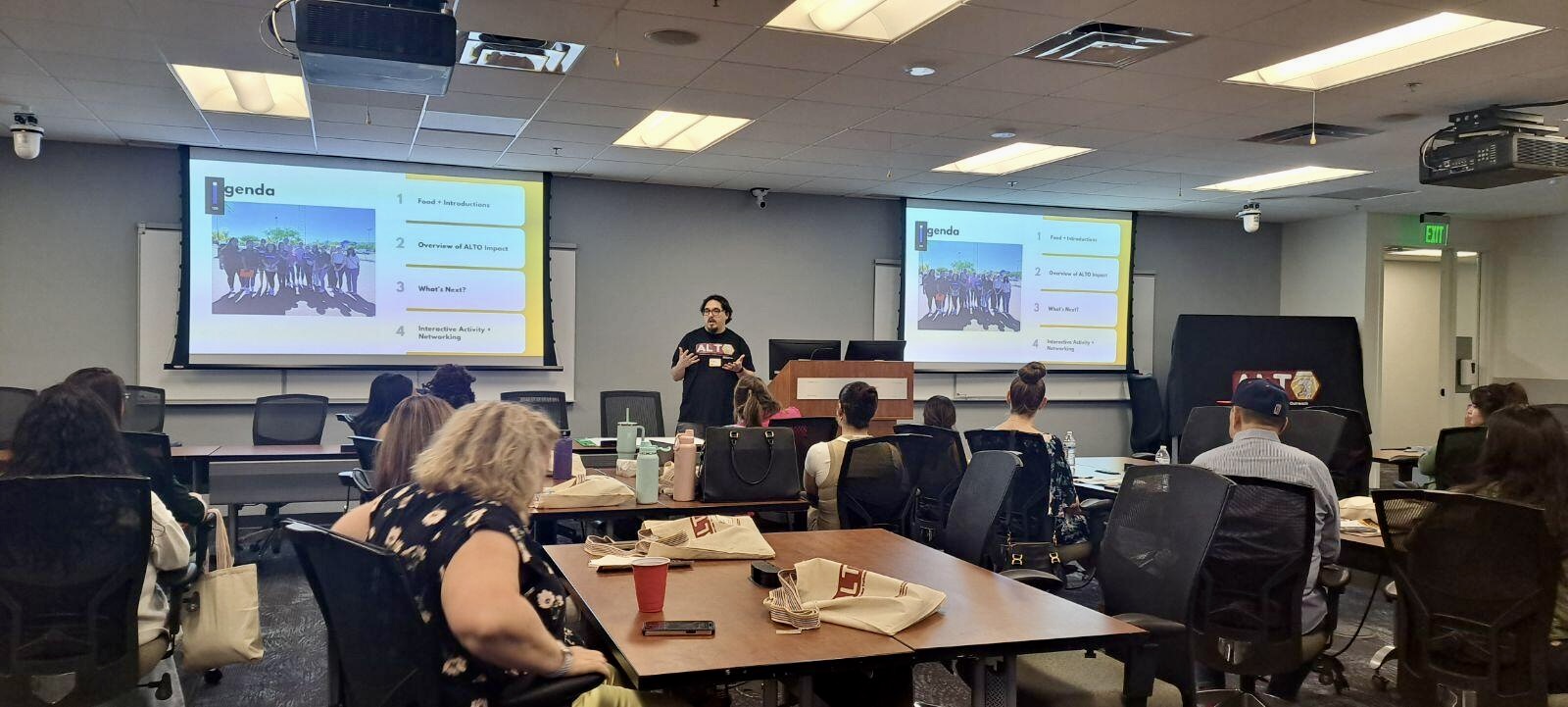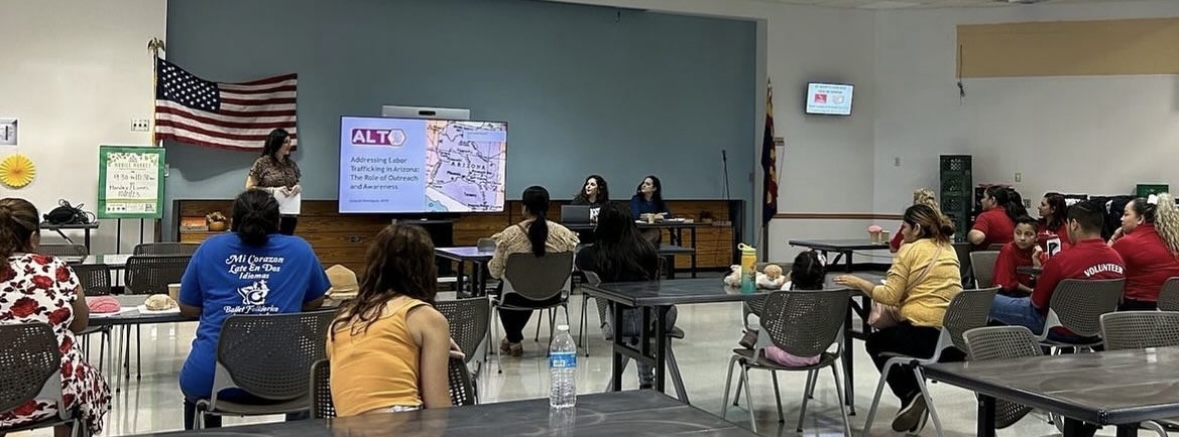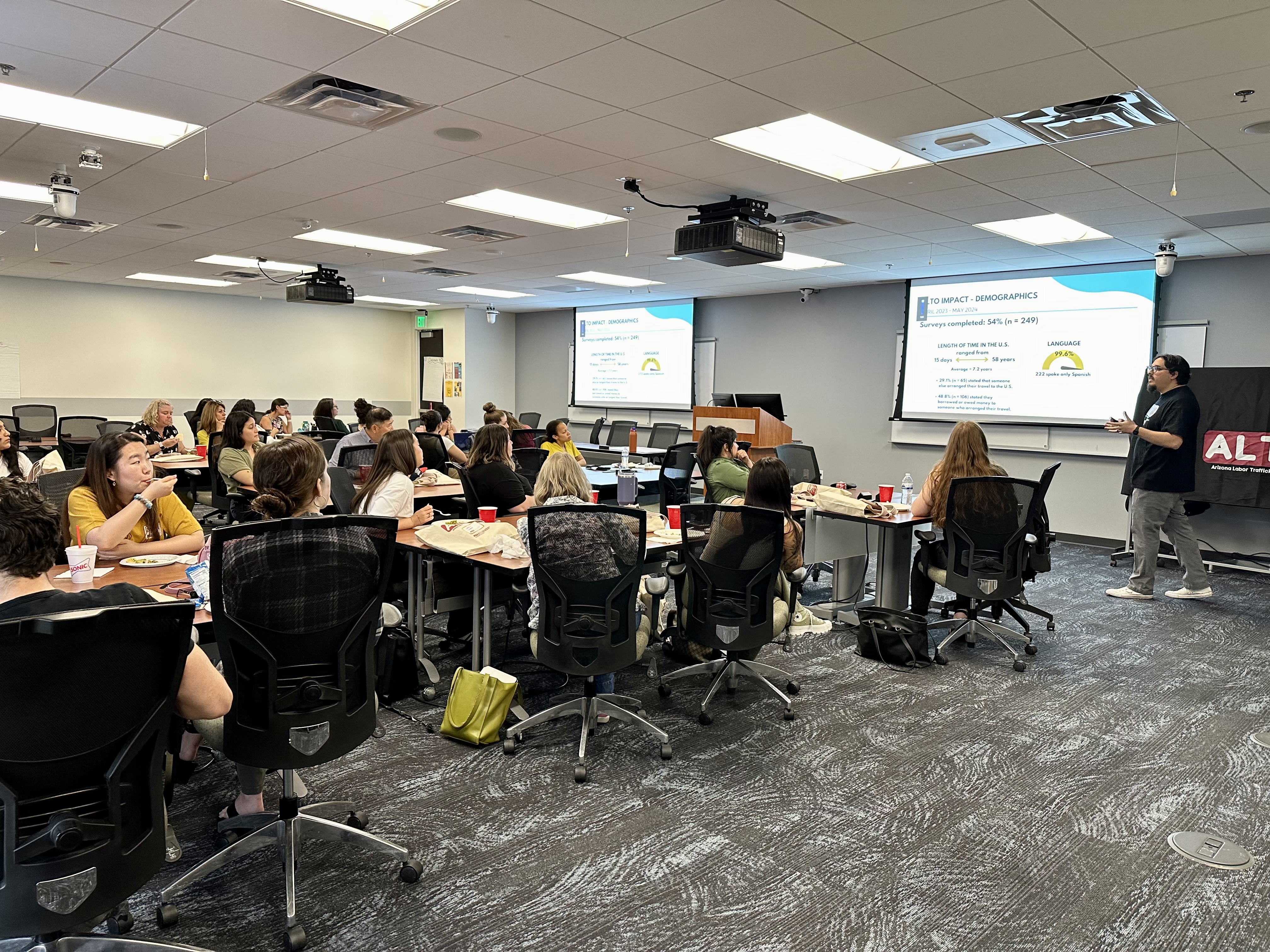Contact Us
Request a Training!
- - Labor Trafficking 101
- - Labor Trafficking 201
- - Labor Trafficking 301
Our labor trafficking trainings are dynamic, evidence-based, and community-focused. Sessions are led by experienced trainers who guide participants through real-world scenarios, interactive discussions, and practical tools to recognize and respond to labor trafficking. Whether you're a service provider, employer, student, advocate, or simply want to make a difference, our trainings are designed to meet you where you are — in-person or virtually.

Our goal is to equip individuals and organizations with the knowledge and confidence to identify labor trafficking, understand risk factors, and take action. Each training includes:
Trainings are tailored for audiences such as educators, social workers, law enforcement, medical professionals, and community organizations.

Goal: To provide participants with a basic understanding of labor trafficking, including what it is, who is most at risk, and how to identify and respond to potential situations of exploitation.
By the end of this training, participants will be able to:
Audience: Appropriate for individuals with little or no prior knowledge of labor trafficking, including professionals, students, and community members interested in increasing their awareness and capacity to respond.
Goal: To deepen participants' understanding of labor trafficking by examining historical and structural conditions, trafficker tactics, and complex barriers to safety, while building skills to respond effectively across systems in a trauma-informed and culturally responsive manner.
By the end of this training, participants will be able to:
Audience: Intended for individuals with foundational knowledge or prior exposure to labor trafficking concepts. Especially relevant for service providers, advocates, legal professionals, and others who support impacted communities and want to strengthen their systems-level understanding and practical response strategies.
Goal: To prepare participants to design and implement effective, community-centered outreach initiatives that address labor trafficking risks, drawing from the Arizona Labor Trafficking Outreach (ALTO) model as a practical example.
By the end of this training, participants will be able to:
Audience: Ideal for new outreach workers, community-based organizations, advocates, or anyone seeking to build skills in labor rights outreach and education.

Whether you're part of a school, nonprofit, workplace, or community group — we'd love to help you bring labor trafficking awareness to your space. Together, we can create safer, more informed communities.